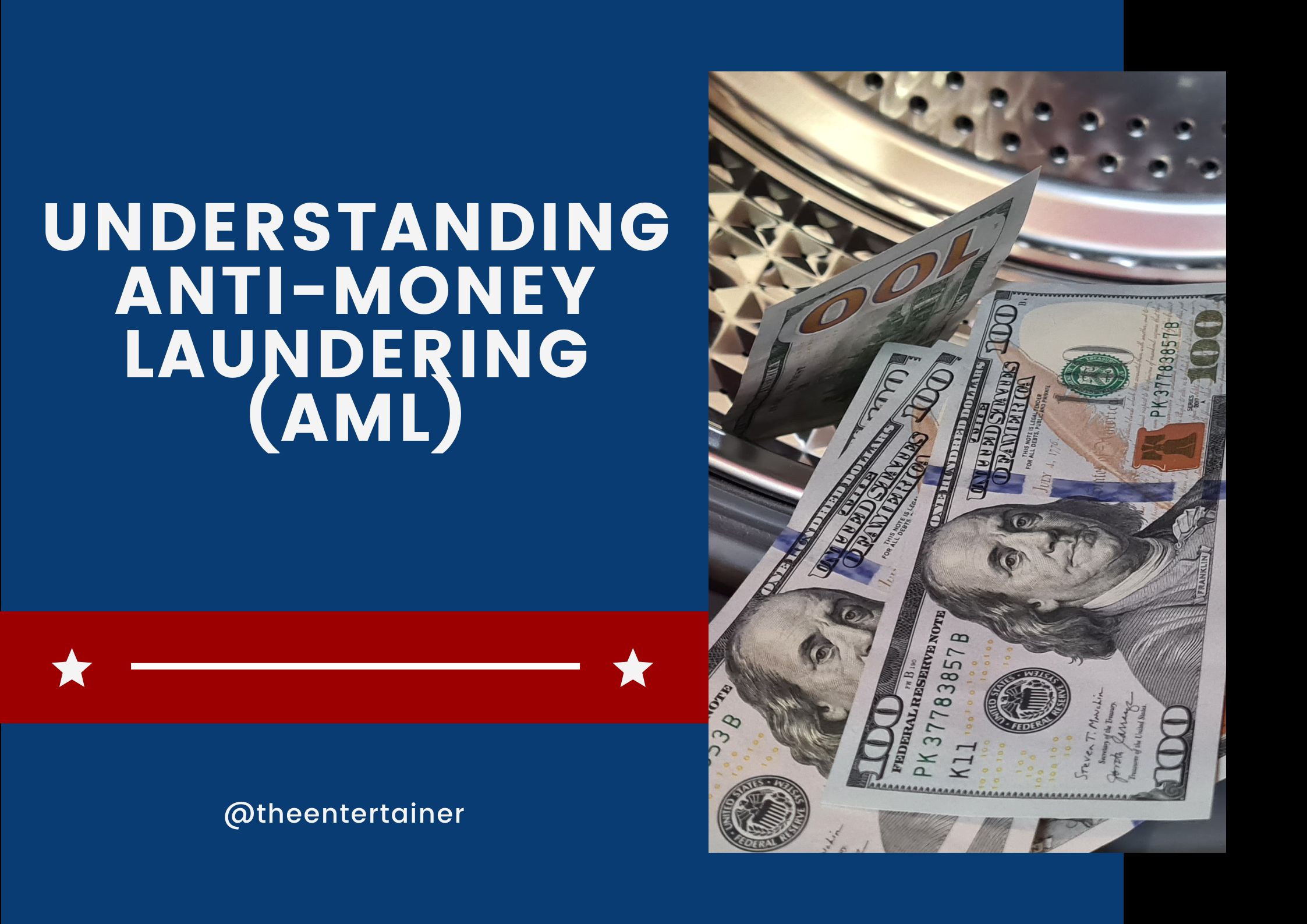**Introduction:**
Anti-money laundering (AML) regulations are crucial in combating the illegal movement of funds, particularly within the realm of cryptocurrency exchanges, where anonymity poses significant challenges to regulatory oversight.

[Canva](https://www.canva.com/design/DAF3gvEjgxo/dziavjTbeVkvWecOVU7q6g/edit?utm_content=DAF3gvEjgxo&utm_campaign=designshare&utm_medium=link2&utm_source=sharebutton)
**Understanding AML:**
AML encompasses a set of laws and regulations designed to thwart the laundering of illegal funds, often overseen by international bodies like the Financial Action Task Force (FATF). Its scope includes targeting activities such as terrorist financing and tax evasion, with efforts aimed at aligning global standards.
**Distinction between AML and KYC:**
Know Your Customer (KYC) procedures, a subset of AML, involve verifying users' identities to ensure accountability for financial transactions. Unlike reactive AML measures, KYC acts as a proactive means of due diligence.
**Money laundering process:**
Money laundering entails disguising illicit funds as legitimate assets through three stages: placement, layering, and integration. Traditional methods involve creating fake transactions, while digital avenues, including cryptocurrencies and online gambling, offer new opportunities for concealing illicit proceeds.
**Functioning of AML measures:**
AML measures operate by flagging suspicious activities, suspending transactions for investigation, and reporting findings to relevant authorities. Cryptocurrency exchanges like Binance play a pivotal role in implementing robust AML compliance programs to combat money laundering.

[Freepik](https://www.freepik.com/free-photo/thief-wearing-black-hat-obscuring-face-was-arrested-gray_5219087.htm#fromView=search&page=1&position=2&uuid=a60e00ed-57a5-41ce-8fea-6a226c58f312)
**Significance of FATF:**
The FATF, established to combat terrorism financing and money laundering, sets international standards to impede illicit financial activities. Its efforts facilitate global cooperation and information sharing among jurisdictions.
**Need for AML in crypto:**
Given the pseudonymous nature of cryptocurrencies, AML regulations are imperative to mitigate criminal exploitation and ensure tax compliance. Despite challenges, enhanced AML measures benefit legitimate users and bolster the reputation of the cryptocurrency industry.
**Examples of crypto money laundering:**
Instances of successful law enforcement interventions highlight both the prevalence of crypto-related money laundering and authorities' efforts to counteract such activities. Collaborative initiatives involving exchanges like Binance contribute to identifying and prosecuting cybercriminal organizations.
**Exchange's AML support:**
Different exchanges exemplifies proactive engagement in combating money laundering by implementing advanced detection and analytics tools. Collaborations with international agencies underscore its commitment to curbing illicit financial activities within the crypto sphere.
**Conclusion:**
While AML measures may introduce complexities to cryptocurrency transactions, they are indispensable for ensuring the integrity of financial systems. Continued advancements in technology and concerted efforts by regulatory bodies and exchanges are essential in the ongoing fight against money laundering.